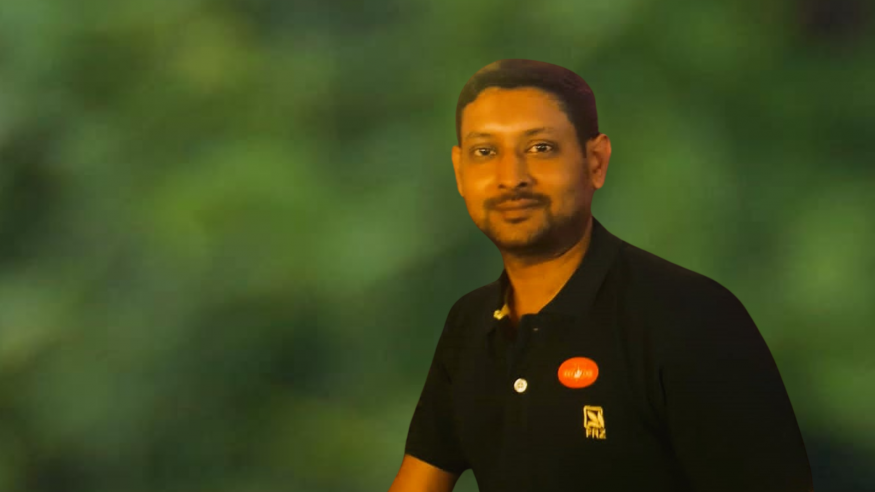Meet the Researcher – Dr Debajyoti Bhaduri
27 February 2024
Dr Debajyoti Bhaduri specialises in high value manufacturing within the School of Engineering. We asked him a series of questions to find out more about the person behind the research and to find out how he is helping to make a difference to society:
1) What is your main area of research?
My primary research centers around cutting edge manufacturing technologies with a particular emphasis on laser micromachining, laser-based surface engineering, metal additive manufacturing and hybrid manufacturing. My research primarily takes place within labs and I find this particularly interesting as I can enjoy hand-on experience exploring new manufacturing processes and how particular materials respond to new emerging technologies. Recently, I have focused on a metal binder jetting process and I’m excited about this research area as it holds significant potential in the UK, where its full scope has yet to be fully realised.
2) Why did you become a researcher?
My family has a history of being in academia and I have been inspired by the family members. I became intrigued about research during my Master’s degree at Indian Institute of Technology Kharagpur, one of the most prestigious engineering institutions in my home country.
3) What are the next steps for your research project?
We have recently launched a new research area, Circular Hybrid Manufacturing (CHM), that develops circular processing routes for AM powders from production scrap. The ultimate goal of the research is to establish a Net Zero route for AM powder processing. This route of materials recycling is being undertaken for the first time in the UK.
Our next steps are building the CHM production line. We are currently in the process of building this line. Once the proof-of-concept is established we would optimise the process chain to fabricate high-value AM parts using powders generated from production scrap.
4) What is your biggest achievement as a researcher?
In line with this new CHM research area, one achievement I am proud of is about a recent procurement of a metal binder jetting machine which is one of its kind for UK universities (arguably the 1st among UK universities by 2023). I have also published more than 40 journal and peer-reviewed conference papers focused on various advanced manufacturing technologies, such as machining, coating, laser processing and additive manufacturing. Two of my papers have been awarded with the best paper awards by IMechE in 2017 and the Society of Tribologists and Lubrication Engineers in 2019. These papers focus on laser micromachining and tribology in machining.
5) Does your research have global impact?
Under the current climate emergency scenario, the CHM research aims to dramatically reduce the energy consumption and CO2 footprint of standard AM powder production. The research aims to develop a transformational pathway of processing AM powders at room temperature, ultimately working towards achieving Net Zero emissions for the entire AM industry. This research has immense potential to create global impact for the AM sector.
I also previously worked on EU projects that focused on the mass production of small additively manufactured parts that can incorporate complex features but at the same time with reduced weight, compared to what can be achieved via conventional manufacturing techniques. Various light-weight demo-parts with complex geometry were produced at the end of the projects which were adopted by several partner EU companies, such as Alstom, Fiat (CRF), and Cartier.
6) Do you have any advice for future students considering becoming an academic/researcher?
Researchers will need to have an insightful mind and rigour. We fail many times while achieving our targets, however this should not discourage us, and we should keep trying until we achieve our goals.